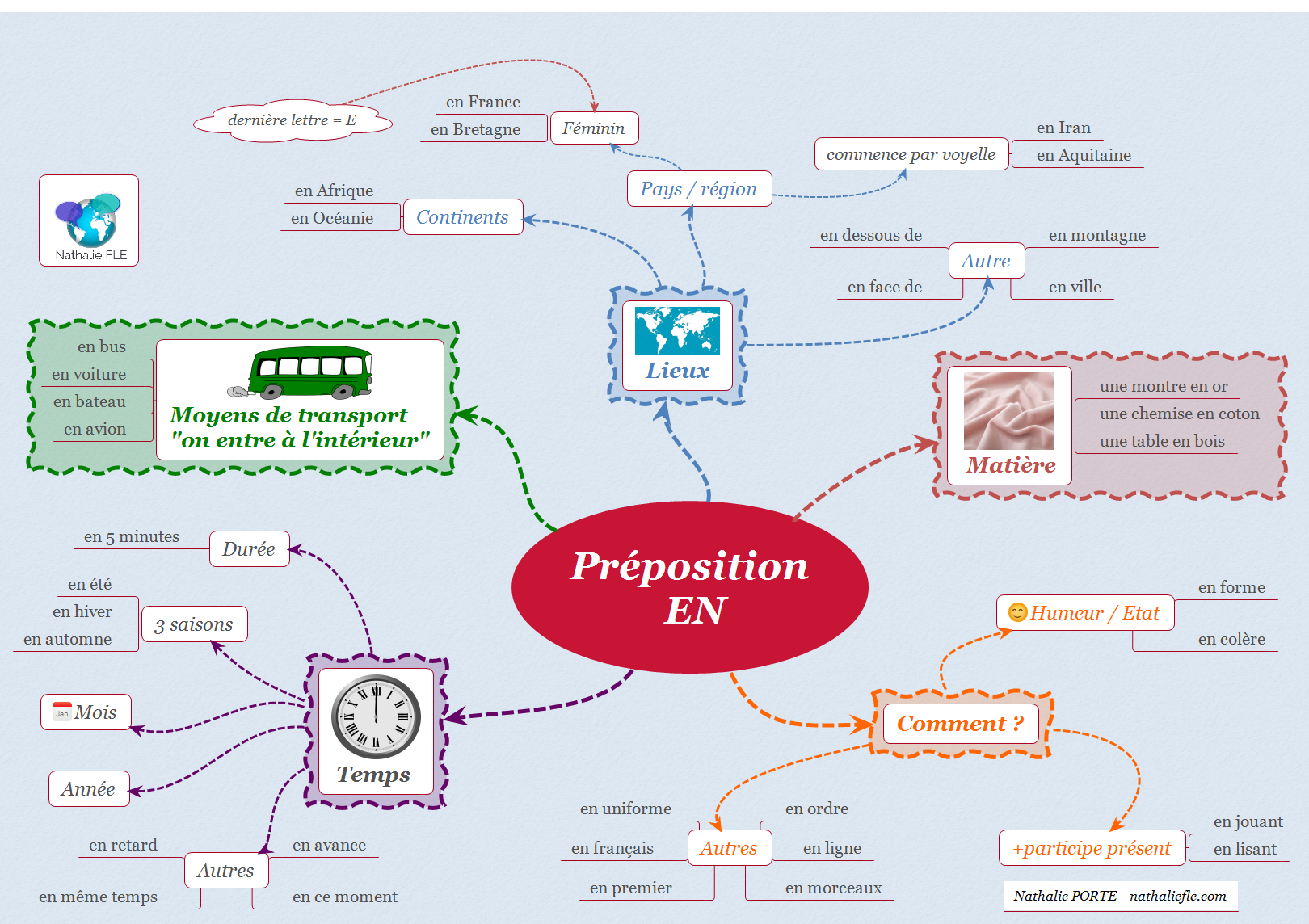Difference between revisions of "Language/French/Grammar/Use-of-en"
| Line 39: | Line 39: | ||
==Mental Card of the EN preposition== | ==Mental Card of the EN preposition== | ||
Source: https://nathaliefle.com/wp-content/uploads/2016/11/Pr%C3%A9position-EN.png | *Source: <nowiki>https://nathaliefle.com/wp-content/uploads/2016/11/Pr%C3%A9position-EN.png</nowiki> | ||
[[File:Préposition-EN.png]] | [[File:Préposition-EN.png]] | ||
Revision as of 21:22, 18 October 2021
Rules & Examples
en is the pronoun used to replace phrases introduced by de which follow the verb. Where these include a noun, en can refer to both human and non-human nouns:
- Il a déjà parlé de son idée
He has already spoken about his idea
- Il a empêché lean-Pierre de travailler
He stopped jean-Pierre working
- Mémé s'occupe des enfants
Grandma is looking after the children
- Christine est fière de son frère
Christine is proud of her brother
- Il en a déjà parlé
He has already spoken about it
- Il l'en a empêché
He stopped him doing it
- Mémé s'en occupe
Grandma is looking after them
- Christine en est fière
Christine is proud of him
In spoken French, where people are referred to, it is quite likely that a stressed pronoun following de will be used instead:
- Mémé s'occupe d'eux
- Christine est fière de lui
NB: An exception to the generalization that en can replace phrases introduced by de is those verbs, such as permettre, défendre and interdire, with a construction using . . . à quelqu'un de faire quelque chose. The infinitive clause is treated as a direct object:
- Elle a permis à Jean-Marie d'emprunter sa voiture
She allowed jean-Marie to borrow her car
- Elle le lui a permis (le means 'to borrow the car')
She allowed him to do it
- Il a défendu à Suzanne de sortir ce soir
He forbade Suzanne to go out this evening
- Il le lui a défendu (le means 'to go out this evening')
He forbade her to do it
Mental Card of the EN preposition
- Source: https://nathaliefle.com/wp-content/uploads/2016/11/Pr%C3%A9position-EN.png

